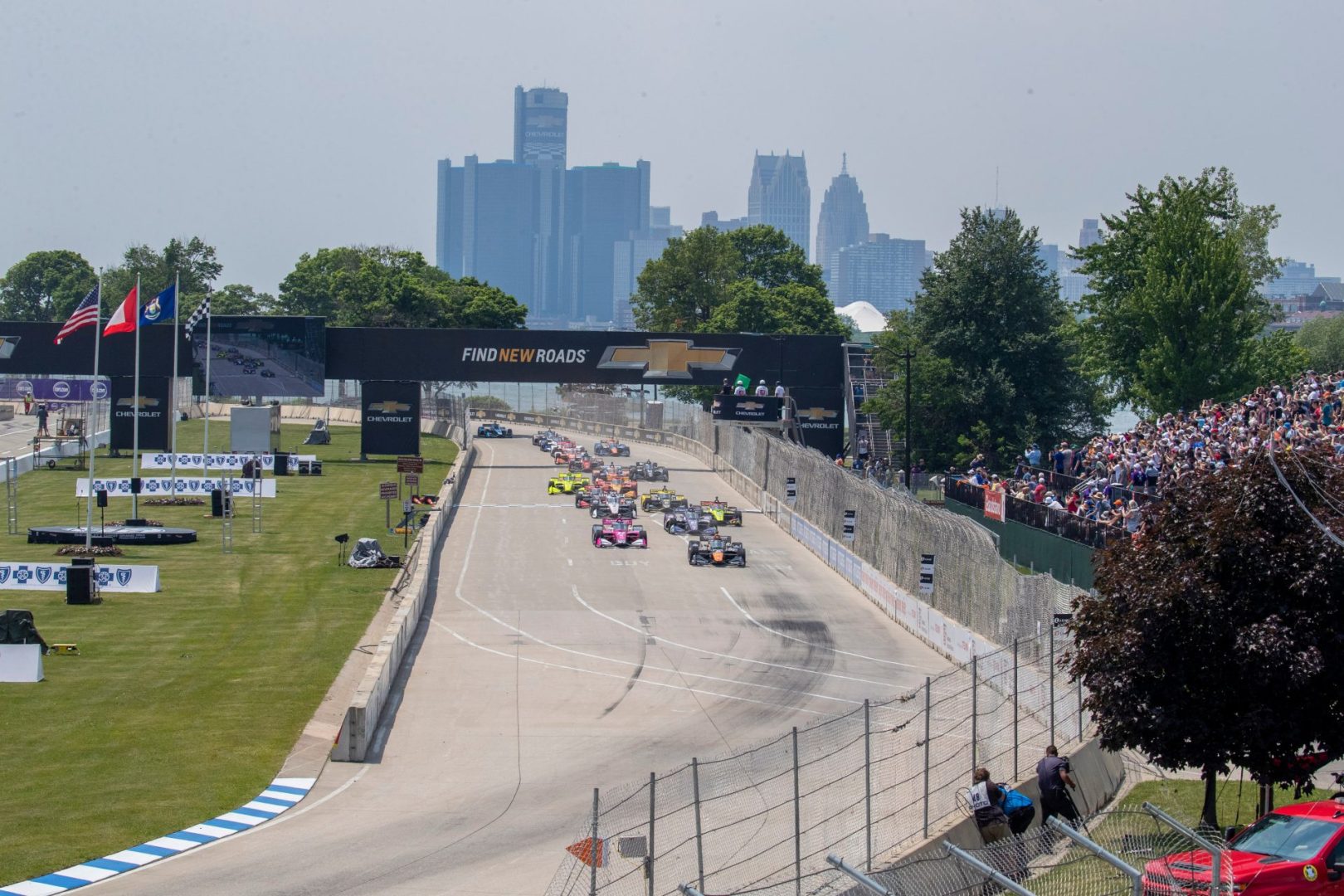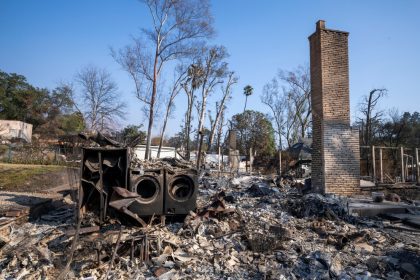Detroit’s downtown core will undergo its annual transformation into a world-class racing venue this weekend as the Detroit Grand Prix converts ordinary city streets into a challenging 1.7-mile circuit for professional motorsports competition. The three-day event begins Friday with Free Prix Day and culminates Sunday with the featured race, bringing international racing talent to the Motor City’s urban landscape.
The event attracts elite drivers including Alex Palou, who captured victory at the Indianapolis 500 just last week and previously won the Detroit race two years ago. This convergence of racing excellence and urban setting creates a unique motorsports experience that distinguishes Detroit’s Grand Prix from traditional racetrack competitions held at permanent facilities.
Economic powerhouse generates regional prosperity
The Detroit Grand Prix serves as a significant economic catalyst for the metropolitan region, with projections indicating an economic impact exceeding $100 million throughout the weekend. This substantial financial contribution demonstrates how major sporting events can drive tourism, hospitality, and retail activity that benefits local businesses and employment.
The economic benefits extend beyond immediate spending to include international media exposure that showcases Detroit’s downtown revitalization and infrastructure capabilities. Television coverage and digital media attention provide marketing value that promotes the city’s ongoing development efforts and attractions to global audiences.
Local hotels, restaurants, entertainment venues, and retail establishments experience concentrated demand during the race weekend that can influence their annual revenue projections. The economic multiplier effect creates opportunities for businesses throughout the metropolitan area, not just those within the immediate race footprint.
Accessibility initiatives welcome diverse audiences
Friday’s Free Prix Day provides community access through complimentary admission to grandstands 1 and 9, ensuring that economic barriers do not prevent local residents from experiencing world-class motorsports competition. This accessibility approach reflects commitment to community engagement beyond typical commercial sporting events.
Wheelchair-accessible viewing platforms positioned along Jefferson Avenue throughout the weekend demonstrate inclusive planning that accommodates visitors with mobility challenges. These dedicated viewing areas ensure that physical limitations do not prevent spectators from enjoying the racing action and atmosphere.
Free fan activation areas at Hart Plaza, Spirit Plaza, and Woodward Avenue provide additional entertainment and engagement opportunities that extend the event experience beyond race viewing. These spaces create community gathering points that enhance the festival atmosphere while providing activities for families and casual motorsports fans.
Infrastructure coordination manages urban disruption
The conversion of Jefferson Avenue between the Lodge Freeway and Rivard Street, along with portions of Woodward Avenue, requires extensive coordination between racing organizers and city transportation officials. These road closures represent significant logistical challenges that must balance race requirements with community mobility needs.
Detroit Department of Transportation has implemented bus route modifications to maintain public transit service despite the racing circuit’s impact on normal traffic patterns. These adjustments demonstrate how major events can be accommodated while preserving essential transportation services for residents and visitors.
The temporary transformation of public roadways into racing infrastructure showcases Detroit’s ability to adapt urban space for diverse purposes while maintaining essential city functions. This flexibility reflects broader urban planning capabilities that support economic development through event hosting.
Transportation solutions address parking challenges
Most parking garages within the race footprint will close during the event, with only the Franklin Garage remaining operational through pre-purchased tickets starting at $75. This parking limitation requires visitors to utilize alternative transportation methods and plan arrival strategies in advance.
The People Mover system provides convenient access to the Renaissance Center within the Grand Prix area, allowing visitors to park along the route and use public transit to reach the event. The service operates without charge during the race weekend, reducing transportation costs for spectators.
The QLine offers another transportation option for visitors parking north of Campus Martius, providing direct service to the race area without requiring navigation through traffic-congested streets. Both transit systems help manage vehicle traffic while providing efficient spectator access to racing venues.
Educational outreach supports casual fan engagement
Motorsports terminology and competition formats can present barriers for casual fans unfamiliar with racing conventions and technical aspects. Educational resources and glossaries help newcomers understand race dynamics, driver strategies, and technical elements that enhance viewing experiences.
The specialized nature of motorsports creates opportunities for fan education that can develop long-term interest in racing beyond single-event attendance. Comprehensive information resources help convert casual spectators into informed fans who appreciate the sport’s complexity and competitive elements.
Community outreach efforts that explain racing fundamentals contribute to broader cultural appreciation for motorsports while supporting the event’s long-term sustainability through expanded fan base development.
Penske organization confronts integrity challenges
Team Penske, led by local business leader Roger Penske, faces scrutiny following a cheating scandal that resulted in executive dismissals just before the Indianapolis 500. The controversy creates additional pressure for the organization’s Detroit performance and public relations management.
The scandal’s timing, occurring immediately before major racing events, demonstrates how integrity issues can affect team performance and public perception during high-profile competitions. The dismissal of three executives indicates serious organizational consequences for rule violations.
Team Penske drivers experienced disappointing Indianapolis 500 results, with mechanical failures and accidents limiting their competitive success. These performance issues may reflect organizational disruption caused by the scandal’s impact on team preparation and focus.
Media coverage expands audience reach
Fox television coverage beginning at 12:30 p.m. Sunday provides national and international exposure for Detroit’s Grand Prix while reaching motorsports audiences beyond local attendance. This broadcast platform showcases the city’s event hosting capabilities to diverse geographic markets.
Local radio coverage on 910 AM ensures that regional audiences can follow race action and related activities throughout the weekend. Radio coverage provides accessibility for listeners who cannot attend in person or access television broadcasts during the event.
The combination of television and radio coverage creates multiple media touchpoints that maximize audience engagement while providing promotional value for Detroit’s tourism and economic development initiatives.
Ticketing options accommodate varied preferences
Variable ticket pricing structures allow spectators to select viewing experiences that match their budget constraints and interest levels. This pricing flexibility helps maximize attendance while accommodating diverse economic circumstances among potential visitors.
The range of ticket options, from free admission opportunities to premium seating packages, demonstrates event organizers’ commitment to inclusive access while generating necessary revenue for operational expenses and community benefits.
Advance ticket sales provide revenue predictability for organizers while offering potential cost savings for early-purchasing spectators. The ticketing approach balances commercial requirements with community accessibility goals.
Weekend schedule builds momentum toward finale
The three-day event structure creates sustained excitement and economic activity while allowing different audience segments to participate based on their availability and interests. Friday’s free activities establish community engagement while weekend races attract dedicated motorsports enthusiasts.
The progressive schedule builds anticipation toward Sunday’s featured race while providing multiple opportunities for spectator engagement and vendor sales throughout the extended event period. This approach maximizes both entertainment value and economic impact.
The extended timeline allows visitors to experience Detroit’s downtown attractions beyond racing activities, potentially encouraging return visits and positive word-of-mouth promotion for the city’s tourism offerings.
Urban racing legacy continues Detroit tradition
The Detroit Grand Prix represents continuation of the city’s long-standing relationship with motorsports and automotive culture that reflects its historical identity as the center of American automobile manufacturing. This connection creates authentic cultural significance beyond typical sporting events.
The street racing format showcases Detroit’s urban landscape while celebrating the city’s automotive heritage through high-performance competition in an urban setting. This combination creates unique promotional opportunities that distinguish Detroit from other racing venues.
The event’s annual return demonstrates Detroit’s commitment to hosting world-class sporting events that generate economic benefits while showcasing the city’s capabilities and attractions to international audiences.
Detroit’s Grand Prix weekend represents successful integration of professional motorsports competition with urban event hosting that generates significant economic impact while providing diverse community engagement opportunities that celebrate the city’s automotive heritage and ongoing development progress.












